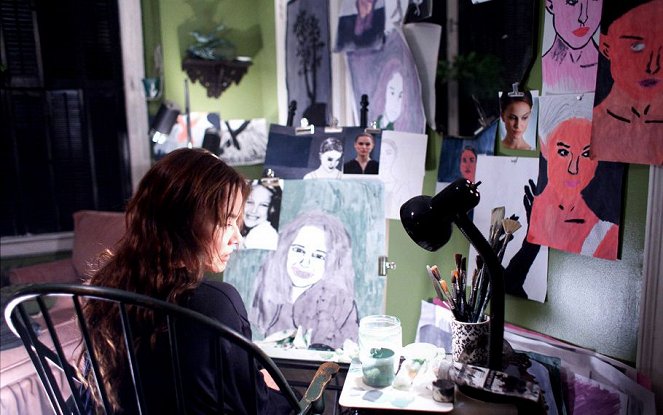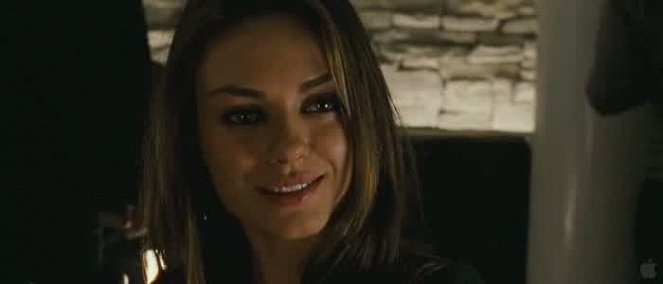Directed by:
Darren AronofskyCinematography:
Matthew LibatiqueComposer:
Clint MansellCast:
Natalie Portman, Mila Kunis, Vincent Cassel, Barbara Hershey, Winona Ryder, Benjamin Millepied, Ksenia Solo, Kristina Anapau, Janet Montgomery (more)VOD (5)
Plots(1)
Natalie Portman gives the performance of a lifetime as Nina, a stunningly talented but dangerously unstable ballerina on the verge of stardom. Pushed to breaking point by her driven artistic director (Vincent Cassel) and the threat posed by a seductive rival dancer (Mila Kunis), Nina's tenuous grip on reality starts to slip away. As the pressure builds, Nina's all-consuming obsessions spin out of control, plunging her into a waking nightmare that will threaten not only her sanity, but her life. (20th Century Fox Home Entertainment)
(more)Videos (5)
Reviews (17)
Aronofsky's declaration of love for The Red Shoes. A psycho (not psychological!) update of Swan Lake for the 21st century in art-mainstream trappings with the now traditionally weeping Natalie who also happens to play her own self wonderfully. I expected more of a balletic backstage full of sharp elbows, intrigue, and obsession, and fewer would-be horror elements that Aronofsky didn't quite master yet (um, mirrors… like seriously Darren?). Still, it works, and it escalates magnificently.
()
An unsettling journey through the ballet stage with an atmosphere that takes your breath away in every shot. Darren Aronofsky has come up with his version of mental darkness and I can't stop staring. Mainly thanks to the mesmerizing camera and brilliant Natalie Portman, this is one of those experiences that must be removed from your head almost forcibly due to its suggestiveness. It is difficult to say in one sentence why Black Swan is so amazing. I just know and feel that it truly is.
()
After the solid but not entirely satisfactory Wrestler, Aronofsky consolidates his position among my most favourite directors. The first hour of Black Swan is pretty similar to Wrestler – we follow very closely (almost intimately) one person at a turning point of their lives, we feel their emotions and every one of their injuries. This is not always very pleasant, Aronofsky knows how to transmit pain from the screen to the viewer like few others. This “introduction” would already be enough for four stars, but the last half hour shattered, disarmed and decimated me; utterly so. I felt a constant chill on my back and I shivered like an aspen tree; my eyes an ears were unable to perceive anything but the film. No other film this year has made me feel like this. 100 %
()
The same (un)attractive Aronofsky, a director who masterfully handles details and always, with the reliability of a Swiss watch, and excels in taking an overall view of the matter. The same goes for Black Swan, a film with incredible potential, offering an unconventional look into the world of ballet and its backstage. The director skillfully utilized this (Libatique and his camera escapades), while Natalie Portman's performance is captivating. Unfortunately, when it comes to the plot, it is lacking. The transformation is unengaging and essentially the same song – meaning Darren relies on certainty and follows the same psychological pattern (plus a few striking inserts). After several times, however, the effect is somewhat muted, and one tends to search for more and more flaws in each subsequent film of his.
()
Although Black Swan appears to be made from the same dough as The Wrestler, it is only half true. Yes, it fits quite well superficially - the concept is actually similar, intimate body camera, ruthless details, long tracking shots, scenes of mutilation in the name of foolish desire (again, it is a desire expressed by roaring crowds). But it cannot be overlooked that in one important respect, Black Swan is antithetical to The Wrestler. While The Wrestler was a film where the inside of the hero remained hidden and it was a documentary record of gradual doom, in Black Swan everything is outward, the pain is written into horror expressive scenes, the heroine's psychoses are "Freudian" amplified and accentuated by various dreamlike chimeras. Everything inside happens on the outside at the same time, and the viewer is trapped in the snares of an unreliable storyteller. Where reality ends and Nina's fantastical projection begins is sometimes difficult to decipher. Some of the scenes are suspiciously conventional (you can see it well in all the horror jump scares and phantoms) and I couldn't shake the impression that for the mutating surface, Aronofsky missed what was not visible in The Wrestler, yet was physically felt - an intimate plane of pain "out of desire" leading to the final grand gesture of self-destruction. Black Swan is essentially ancient during the ending, but it didn't affect me nearly as much as Randy's last “ram-jam". Everything is in place here (a famous camera, a devastating Natalie and a magnificent musical accompaniment), yet ecstasy did not come. I think Aronofsky was able to go deeper in the past without theatrical props.
()
Gallery (107)
Photo © Fox Searchlight Pictures



Ads